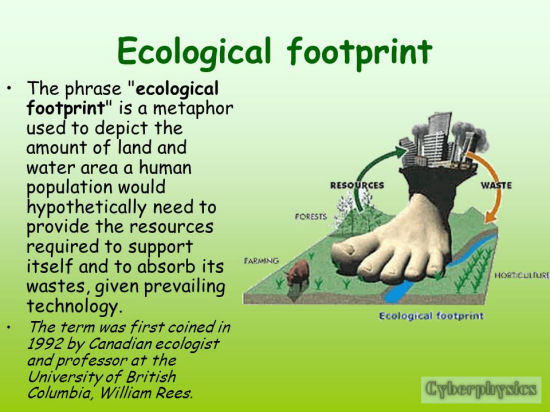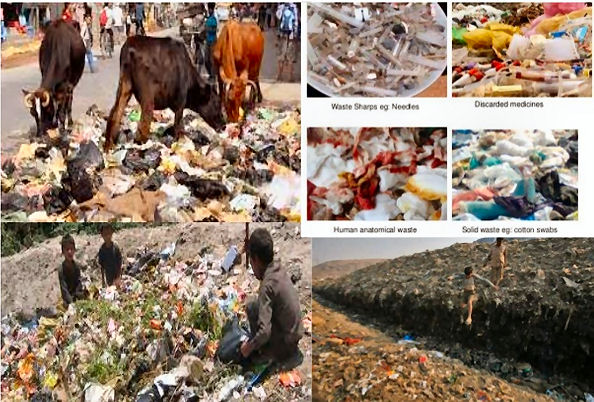 This article or essay is a response to some typical growthist responses to the question posed by Mikhael Bornstein on a Quora forum here: "How long before our species realizes that overpopulation is the root cause to almost all of our global problems?. I describe how growthists narrow the range of their argument, what they leave out, and I analyse how they mistaken the hypothetical for the actual, acting as if the solutions they propose for obvious overpopulation problems, were already happening, when most probably never will.
This article or essay is a response to some typical growthist responses to the question posed by Mikhael Bornstein on a Quora forum here: "How long before our species realizes that overpopulation is the root cause to almost all of our global problems?. I describe how growthists narrow the range of their argument, what they leave out, and I analyse how they mistaken the hypothetical for the actual, acting as if the solutions they propose for obvious overpopulation problems, were already happening, when most probably never will.
The arguments I explore came from a US computer science professor, who wrote that he did not worry about population growth because he believed that the world is not overpopulated. His reasons for this were that human population is predicted to 'top out around 10 to 11 billion later this century', that there is plenty of food, energy and natural resources for 9-11 billion people, because these natural resources do not leave the earth and with advanced technology and inexpensive energy, we will be able to recycle them - except for fossil fuels, which he believes won't be needed beyond this century. He thinks that some 'under-developed' countries have an over-population problem because many of their governments are corrupt or anarchistic, impacting on food distribution and education. And, if women are not educated, they do not know about birth control or affordable birth control is not available. He thinks, however, that, in a few decades, most underdeveloped countries will be developed. [This is a belief that people have held since the 1950s or before,that it will all be fixed in a decade or two.] The professor thinks that the developing countries risk population decline and need immigration to maintain them. Those that are not growing, like Japan, need more adult diapers than baby diapers, he adds. He expresses concern that a bigger problem will be maintaining the world population in developed countries, without it decreasing too rapidly.
My responses
With all due respect, I find that Prof Farrages’s answer survives on the narrow range of values it canvasses. It is the values it leaves out that bring it down, along with the theoretical perspective that ignores how things are actually organised.
Other species and the natural world
A major value it fails to take into account is the natural world and other species. This part of the world is suffering terribly because of human expansion and it cannot cope. Our species had close relationships with other species and the natural world for almost all of its existence. Now we are being deprived of that due to human population growth and expansion, along with the constant growth in consumerism that our modern economies rely on. This is my number one complaint about population growth.
Inhuman mechanised farm production
There is also the terrible inhumanity of feedlots and battery farming, which are 'justified' economically because of the scale required to feed vast human populations. The effluent from this intensified farming wrecks rivers and the animals are often kept permanently on antibiotics because intensive farming raises infection risks.
High rise myopia and other health problems
Humans living in high-rises in dense cities are similar to battery hens in a number of ways. Their lack of outside activity causes myopia in children. High density means exposure to more infections, especially gastric, cold and flu. When these are treated with antibiotics they give rise to secondary problems, including antibiotic resistance and clostridium difficil, which can kill people, is becoming common, but often overlooked, especially in the elderly.
Food distribution and the profit motive
In theory there might be plenty of food, energy and natural resources for 9-11 billion people, but theory is not actuality. Food is not distributed according to need, but to income in our modern systems. Man does not live by bread alone, either.
Materials and energy resources, war and occupation
There are many resources that are scarce, for instance rare earth elements. Cobalt is a major driver of criminal international exploitation and environmental destruction in the Congo. New ways of producing cobalt won't stop that because people can still make money by using slave labour and violence to get the cobalt cheaply. Except in a command economy, new technologies are only taken up when the old are exhausted if the old can be exploited cheaply.
Petroleum is not as plentiful as it was; much of what is now classed as petroleum is actually lease condensate, coal-oil, vegetable oil, and the last two have major consequences, one with pollution and the other by wrecking wildlife habitat and landscapes. We are destroying orangutan habitat for palm oil, just to name one horrendous consequence. If petroleum were plentiful in relation to our population growth and consumption, then we would not have petroleum wars in the Middle East, but we do, with US-NATO the main cause, because it does not want Russia, China or Middle Eastern Countries to have any control over fossil fuels, even those on their doorsteps. The US does the same thing to South American oil-producing states and US-NATO sponsors wars and warlords in places like Somalia because US-NATO presence there means they are close by the petroleum producing states.
Coal is being exploited at a rate and scale never seen before - because it is there, because it is cheaper. Cheap is what drives most economic activity, using slavery, stealing land, and creating wars. (By the way, my quals on this is that I am Sheila Newman Ed. The Final Energy Crisis, Pluto Press, UK, 1st and 2nd edition (co-edited), which were collections of different scientists writing about future prospects for energy.)
Non-fossil fuel energy resources
Yes, there are non-fossil fuel technologies, but they are not 'cheap'. Also they carry a lot of embodied energy in the materials that must be mined to create them. The reality is that they (a) require organisation that the desire for cheapness in the Anglosphere makes impossible (b) they can produce for smaller, lower consumption populations, but the savage capitalism that characterises the Anglosphere demands more and more people to consume more and more stuff - and that needs fossil fuel - so that brings us back to the lowest common denominator again.
Population and democracy
Population growth costs in all kinds of ways. A bigger population means a smaller you. The discouragement of nationalism in favour of open borders by globalists means that nations cannot organise properly to take charge of their population numbers so that they live the lives they want, with the values they want, rather than suffering the consequences of theoretical arguments for more population growth.
The writer characterises third world overpopulation as partly caused by corrupt governments, but the governments in the first world are increasingly corrupt as well, hell-bent on inflating the cost of resources by driving up population growth. Democracy is disappearing in the Anglosphere, as I have implied already.
The Aging population
The writer repeats an old furphy of the 'aging population'. The aging population argument completely ignores the fact that the world's population, including that of almost all 'developed' countries, is bigger than it has ever been, by an order of magnitude. These huge numbers reflect the availability of cheap fossil fuels, which is now in question.
Once again there is a theoretical perspective that pretends that it is reasonable, cost-free, democratic and desirable to engineer population growth to not only maintain this unprecedented population behemoth, but to try and increase it! At some stage the number of children has to go down in proportion to the number of aged: other wise we grow forever and life will become more and more unaffordable.
Population pressure on land and housing prices pushes up the cost of living so high that it becomes too expensive for anyone who does not have high wages - which includes elderly people. This problem resolves itself if you stop importing economic immigrants and allow populations to adjust themselves downwards naturally. Then the prices of all vital resources, including housing and land, come down, and the cost of living with it. This is what has happened in Japan. People are actually returning to Japan because it is becoming such a nice place to live and the cost of living is going down.
One more thing: comparing children from 0-15yrs old with say, people over 65 is an unreal comparison, because it generalises between two cohorts of unequal size. Furthermore, as many young people would know, especially in 'developed' countries, young people may spend much longer as 'dependents' either on their parents or on the state, because they cannot get enough work and because education is increasingly expensive.
Educating girls and immigration
In my country girls are relatively well educated, but our population keeps growing due to mass economic immigration, invited by government and growth lobby.
This is also happening in the 'third world', for instance, Africa. African tribal borders and an associated orderly Africa have been destroyed and there are constantly immigrating and emigrating populations, many of them going in and out of cities, adding both to marriage and fertility opportunities (previously limited by need to find partners within your tribe) in much the same way as is happening in the countries of the first world that are receiving mass immigration.
Immigration is a fundamental driver of population growth. Natural populations in most species, including our own, are small and endogamous. That is, tribe members marry other tribe members. This endogamy is a fertility opportunity limiter. Mass immigration is a fertility accelerator because it stimulates exogamy - which means marrying outside your tribe, which means increasing the proportion of people in a society who reproduce, which was usually limited before our era of globalisation. (See Sheila Newman, Demography Territory Law: The Rules of Animal and Human Populations).
The problem with the theoretical perspective
This theoretical perspective is common to the growth lobby, which tries to minimise problems by talking about how they might be fixed one day as if that were actually happening. Where I live, population growth in Australia is causing massive problems and 74 % of Australians want government to stop artificially engineering population growth (60+ % fueled by mass economic immigration and 80% of New South Wales' last year). See Betts & Birrell: Australian voters’ views on immigration policy: Full Report. One of the main reasons people want population growth to stop is due to exponentially rising traffic congestion, housing prices, homelessness, and changes to laws to remove peoples' right to object to draconian unbelievably expensive infrastructure 'solutions' that don't even solve the problems, but make engineering firms rich and cause engineering technofix ideology to dominate. The growth lobbyists (property developers and financiers - plus upstream and downstream industries) now dominate the mass media and the government and constantly pretend that all this can go on if we 'provide infrastructure'. Part of what is wrong with that is that property development is carried out on bushland and green spaces because they can be bought more cheaply and then rezoned. It also competes with things communities created for themselves. For instance there has been a rash of closing down 50m community swimming pools because population growth has forced up the ‘value’ of the land and developers think that they can make more money by building for more intensive occupaton, using what was public land.
The reality is land-speculation, although the theory is 'smart growth'. And we don't want more infrastructure or more population, because infrastructure is closing in on us even though inadequate to cope with the growth. There are actually systems that deal with planning better, such as France's, but those systems also discourage population growth, which is rightly seen as a cost to the state, which develops the land and subsidises the housing. (On France see Sheila Newman, The Growth Lobby in Australia and its Absence in France:
 Well, it’s got to be the platypus. Everything about the platypus is utterly ridiculous. The fact that this animal even exists is is a defiant middle finger to everything we traditionally thought about how mammals work. It’s no secret that it looks weird, but I doubt many know just how weird it truly is, so let’s take a deep dive into the platypus world.
Well, it’s got to be the platypus. Everything about the platypus is utterly ridiculous. The fact that this animal even exists is is a defiant middle finger to everything we traditionally thought about how mammals work. It’s no secret that it looks weird, but I doubt many know just how weird it truly is, so let’s take a deep dive into the platypus world.
 Most people lack the basic education in arithmetic, geography and logistics to judge whether they are overpopulated, to compare population densities between regions, to factor in import and export, and, most importantly, to understand how waste-disposal requires natural 'services' or to understand that they are themselves, microbiologically, a part of nature, but that each one of us now is extended into a kind of per capita earth moving and processing factory for creating dead stuff. This article evolved from a response to a quora question and appears in its original form here: [
Most people lack the basic education in arithmetic, geography and logistics to judge whether they are overpopulated, to compare population densities between regions, to factor in import and export, and, most importantly, to understand how waste-disposal requires natural 'services' or to understand that they are themselves, microbiologically, a part of nature, but that each one of us now is extended into a kind of per capita earth moving and processing factory for creating dead stuff. This article evolved from a response to a quora question and appears in its original form here: [


 This article or essay is a response to some typical growthist responses to the question posed by Mikhael Bornstein on a Quora forum here:
This article or essay is a response to some typical growthist responses to the question posed by Mikhael Bornstein on a Quora forum here:  This is a very interesting question. Although not familiar with the exact trajectory of India’s demographics over the period, I know of several things that started its population growing beyond what it would have been pre-British colonisation. You can see my books on the subject here:
This is a very interesting question. Although not familiar with the exact trajectory of India’s demographics over the period, I know of several things that started its population growing beyond what it would have been pre-British colonisation. You can see my books on the subject here:  [This is a translation from the French version,
[This is a translation from the French version, 

Recent comments